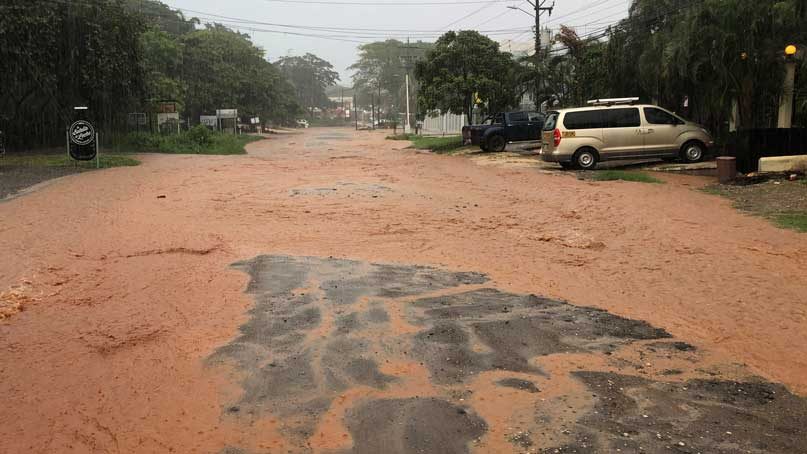Costa Rica real estate represents over 20% of our portfolio. While we are still bullish on the area, we prioritize diversification in our portfolio, including geographic diversification.
While we continually view real estate listings in Costa Rica to stay informed about the market, we are looking for a new area to invest in. We have written before about how we picked Costa Rica and why we selected it for our first international investment and not the Philippines.
Where to invest in real estate is a question we have heard from several of our readers. For example, Dante asks:
I discovered your website when I am looking for properties in the Philippines. I enjoyed reading your post especially about FIRE. My wife and I are first generation immigrants and currently at our 40s. But since we started our family late, the youngest of our 2 kids is only 9 year old.
We are also dreaming about early retirement or at least be financially independent within 10 years.
My wife and I are still both working in the corporate world of NYC. I already started investing in real estate and I learned from one of your post that you invested in other countries too. Even thought, I have a real estate properties in the Philippines, I am not familiar with other places.
1. How do you start your property search? Do you visit the place first before you invest?
2. How do you finance your purchase? Do you get a mortgage for the property?
3. Any suggestions for good place to start a property search?
As we explained in our previous post on real estate possibilities that made our shortlist but that we ultimately declined, we use four main criteria when we invest:
- Riskiness of the investment
- Interest in the area
- Expertise needed
- Activity required of us
We consider the same criteria when we select what geography to invest in. To Dante’s question #3 (suggestions to start a property search), here are 7 factors specific to location that we look at when considering whether to invest in a new geography:
1 – Do we like to spend time there

To Dante’s question #1 (whether we visit a place first before we invest), we most definitely visit before we invest. We traveled to Costa Rica multiple times to confirm it was the location for us and to find the right properties for us.
Even though we have two property managers in Costa Rica, we intend to spend significant time there — to inspect our properties firsthand, to attend the annual homeowners’ association meetings and to simply experience living there. Because we know we’re going to visit repeatedly, we only consider places we want to spend time in.
2 – Can foreigners buy there
That said, there are some factors you can research remotely and should research well before you get there. It’s expensive to travel internationally, so you realistically should only visit places who first meet a minimum set of criteria. For example, are foreigners allowed to own property?
In the Philippines, only Filipino citizens can own land. Foreigners can purchase condo apartments, but you must also have a local bank account in the Philippines. Each country will have different rules.
We declined to invest in Philippines real estate for other reasons, but if everything else pointed to Yes but we wanted to buy a house, farm or land, we would not have been able to do so in our names. At best, we could participate as minority shareholders in a Filipino majority owned corporation. We are not interested in partnering on international deals at this time.
3 – Can we afford to buy there
Switzerland is another country where foreigners are restricted in what they can buy. In the case of Switzerland, foreigners are only allowed to buy in tourist regions. We initially considered Switzerland, which is how we know about this restriction, but the primary issue with Switzerland is the cost.
The cost to buy in those tourist regions would be more than we want to spend in one geography.
4 – How volatile is the currency

One reason that Switzerland made it on our list is because its currency is so stable. Our investments are predominately in US dollars. Even Costa Rican real estate is pegged to the dollar (that gives it stability, but also limits our currency diversification).
One way to get currency diversification would be to buy in a geography with a strong money system, like Switzerland.
Currency risk is one reason we opted not to invest in the Philippines.
5 – Is the government stable
Related to the stability of the currency is stability of the government. We liked that Costa Rica was a democracy, with no military and a high literacy rate. In the most recent presidential election, there was an extremist candidate in the final round who lost by a wide margin.
Any geography we look at needs to have a track record for stable government. You cannot guarantee future political climates, of course, but we try to minimize the chance of our real estate being confiscated under eminent domain or martial law.
6 – Is the economy stable and diverse
In addition to a stable government, we look for a stable and ideally diverse economy. We loved our recent trip to Greece. Greece definitely meets our we-love-to-go-there travel requirement! In fact, we loved it so much on our first trip that we looked up available properties while we were there. There were several affordable options on the island we liked.
Affordability? Check! Foreigners can buy – another check! Greece is on the Euro – one more check! However, the economy has still not recovered from its crushing debt, so it’s not for us for now.
7 – How might climate change affect the area

We love being near the water, so a lot of the countries we look at have a beach option. This means we need to consider the climate risk of the area. The Philippines is already listed by the World Bank as one of the countries most prone to natural disasters. This will probably only worsen with climate change.
Costa Rica, on the other hand, was just named by the United Nations as a 2019 Champion of the Earth. Climate change of course has global effects, and Costa Rica can be affected as much as any other coastal country, but at least it is doing its part to preserve and protect the environment.
In addition to the location overall, each property must be inspected
The above seven factors are how we get started in considering geographies, with factor 1 (interest in traveling there) as our first filter. Of course, in addition to these general factors for each geography, the specific details of a property need to be researched. Is the title clear? Do we have a network in that neighborhood – an attorney, real estate agent, property manager – or can we reasonably build one? What are the projected returns for that particular property?
Once we find a specific place that we like, we can then look at financing it. Bank financing is just one way to buy real estate. You can also get seller financing, find private loans, partner with someone who has money, do a cash-out refinance or get a HELOC on other property or pay cash. There are many ways to finance a purchase, so we don’t use financing as a primary filter. If we find a good deal, we assume we would be able to find the money for it.
So to Dante’s second question (how do you finance your purchase? Do you get a mortgage for the property?), the answer depends on what’s available within the country and what makes the most sense financially. For Costa Rica, bank financing is expensive, so we used a cash-out refinance to buy one property and our self-directed retirement account to buy the other properties.
Where you look for your next property depends on your decision factors

The decision factors that we prioritize inform the research we do, the calculations we run and the trips we decide to take. Some of our factors can be researched remotely, but we personally would never buy in a new geography without being on the ground firsthand.
======
Do you feel differently? If you have invested outside your home country, what factors did you consider?


 We are Scott and Caroline, 50-somethings who spent the first 20+ years of our adult lives in New York City, working traditional careers and raising 2 kids. We left full-time work in our mid-40’s for location-independent, part-time consulting projects and real estate investing, in order to create a more flexible and travel-centric lifestyle.
We are Scott and Caroline, 50-somethings who spent the first 20+ years of our adult lives in New York City, working traditional careers and raising 2 kids. We left full-time work in our mid-40’s for location-independent, part-time consulting projects and real estate investing, in order to create a more flexible and travel-centric lifestyle.  Financial independence and early retirement is not something we originally focused on, but over time realized it was possible. Our free report,
Financial independence and early retirement is not something we originally focused on, but over time realized it was possible. Our free report, 






